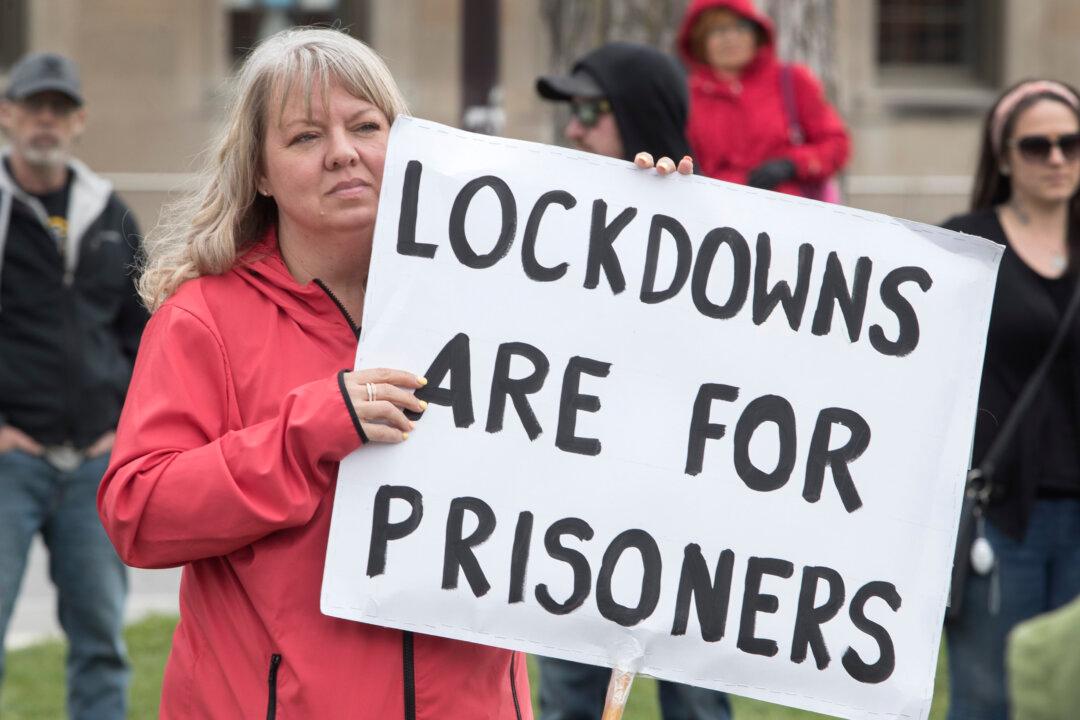Anti-lockdown protesters who were convicted of violating Saskatchewan’s limits on outdoor gatherings are appealing their convictions at the Court of King’s Bench. They are also challenging the constitutionality of gathering limits in a Court of Appeal.
Authorities did not equally apply gathering limits to hundreds who joined Black Lives Matter (BLM) protests in 2020, their lawyers at the Justice Centre for Constitutional Freedoms (JCCF) said in a March 15 release. Saskatchewan Premier Scott Moe said he supported the police in not enforcing the gathering limit at a BLM protest on June 2, 2020, according to CTV.





